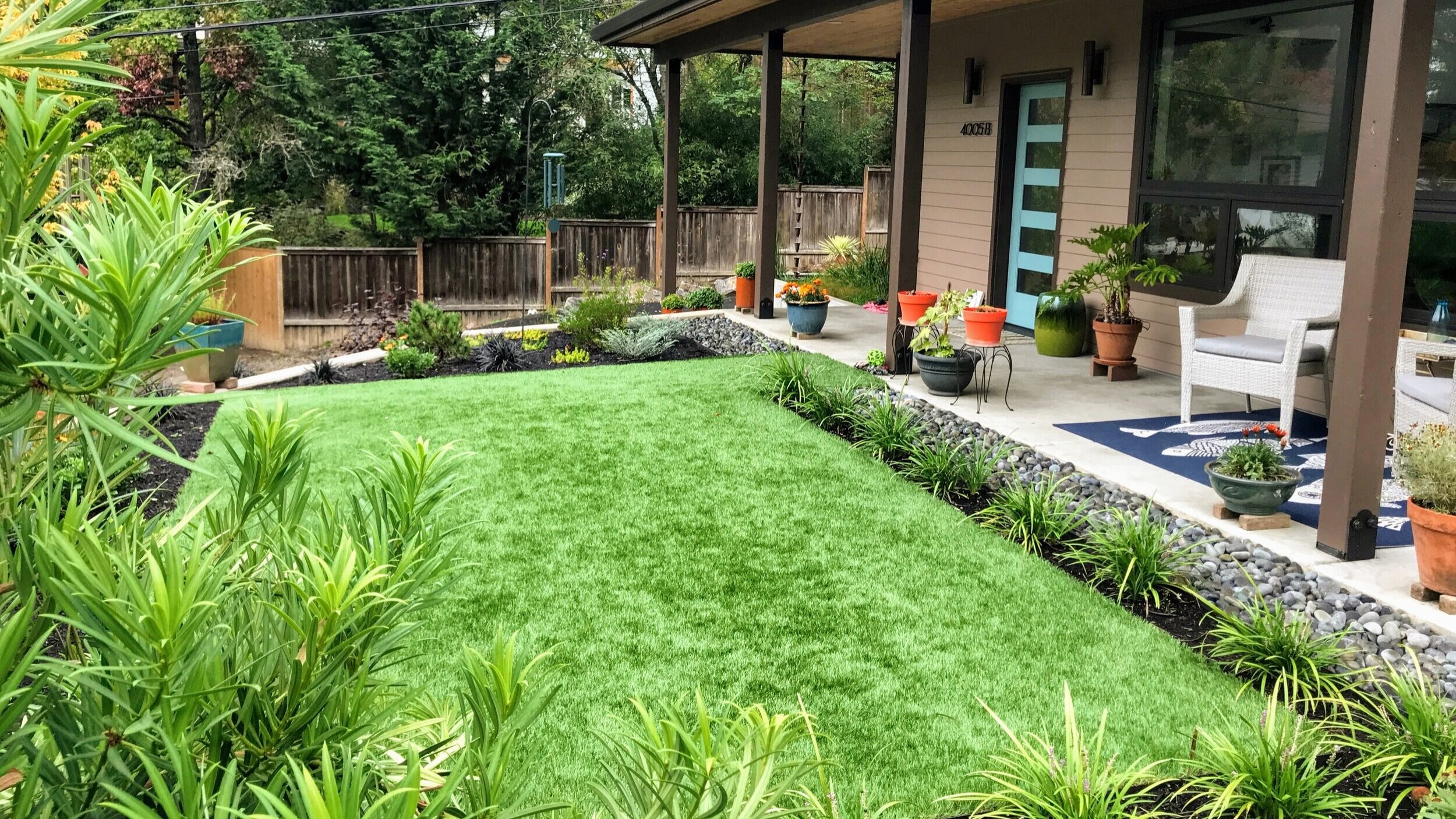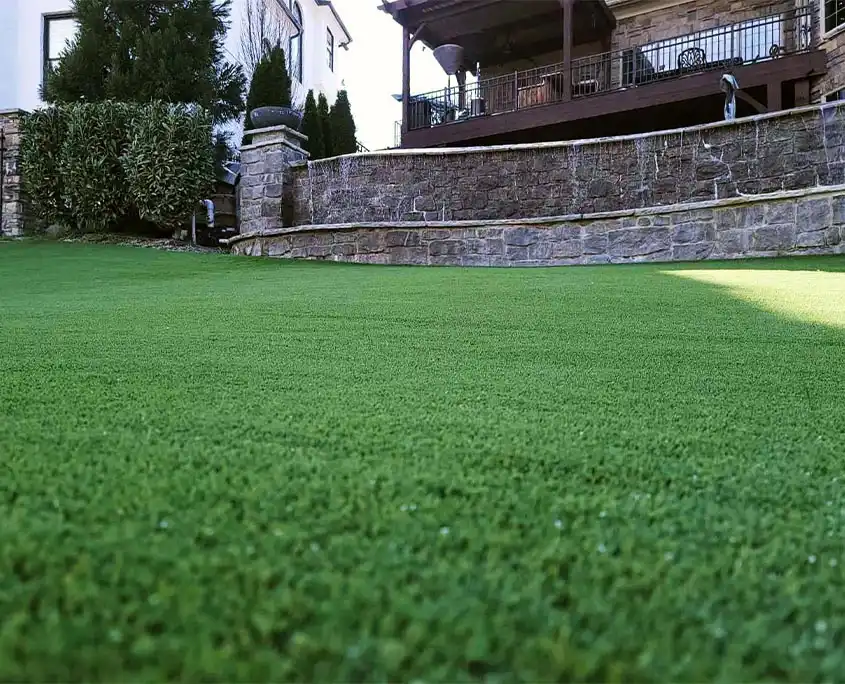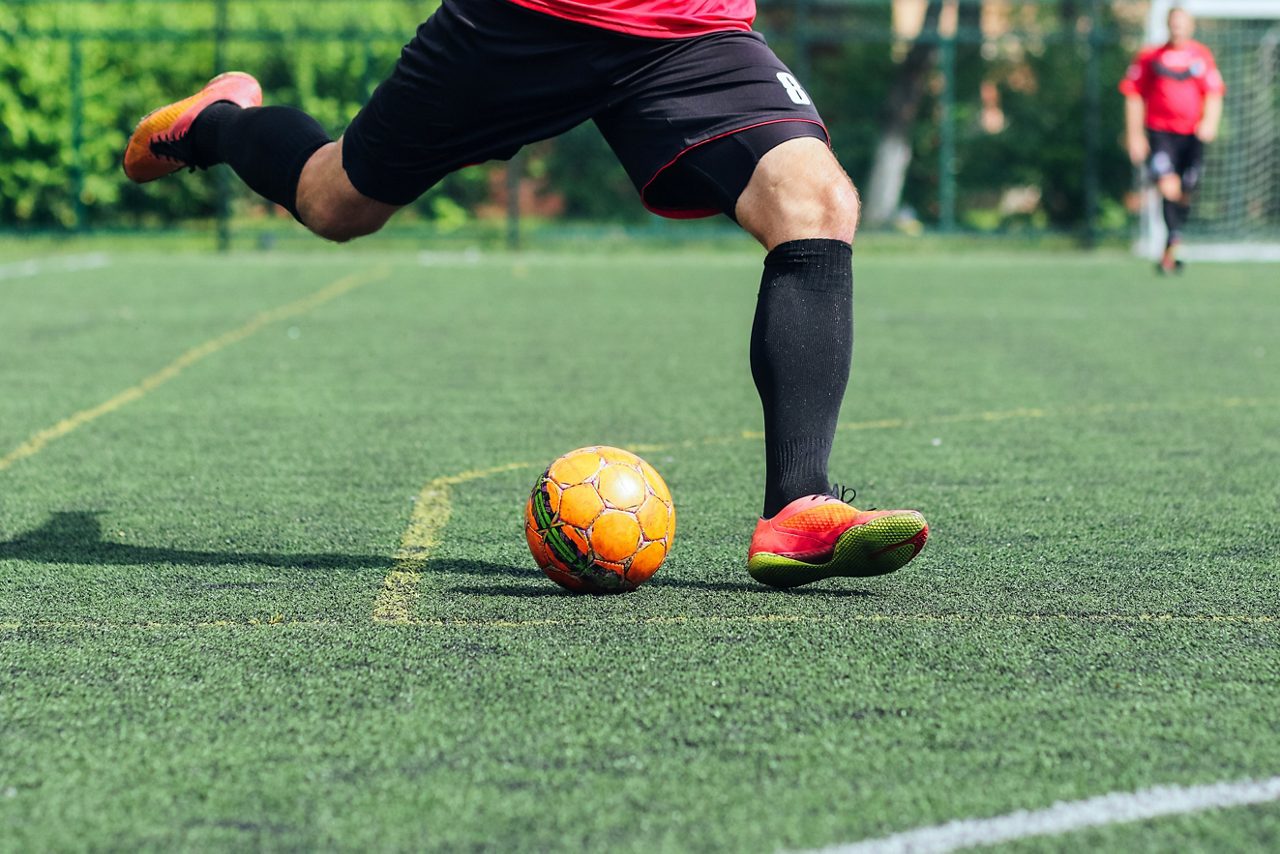Eco-Friendly Arizona Artificial Turf for a All-Season Lush Green Lawn
Eco-Friendly Arizona Artificial Turf for a All-Season Lush Green Lawn
Blog Article
Look Into the Environmental Benefits of Opting for Synthetic Grass Solutions
The fostering of fabricated lawn solutions provides a compelling opportunity to attend to pushing ecological difficulties. By considerably lowering water usage and lessening the application of dangerous chemicals, these alternatives not only promote sustainable landscaping yet additionally protect neighborhood communities.
Water Preservation Perks
One of one of the most substantial benefits of synthetic grass is its capability to preserve water. Standard grass lawns need considerable watering, especially in areas susceptible to drought or water limitations. On the other hand, man-made lawn does not require watering, considerably lowering the total need for water sources. This function is specifically advantageous in arid regions where water shortage is a pushing problem.
By getting rid of the need for routine watering, synthetic lawn contributes to sustainable landscape methods and helps minimize the ecological impact of extreme water consumption. In addition, the conservation of water encompasses the decrease of overflow, which can bring about soil erosion and river pollution.
Additionally, the installment of fabricated grass enables house owners and municipalities to assign water resources a lot more effectively, concentrating on essential uses such as drinking water and farming. The change in the direction of fabricated turf not only promotes responsible water usage yet additionally straightens with more comprehensive ecological objectives intended at maintaining all-natural resources.
As neighborhoods progressively prioritize sustainability, the water conservation advantages of artificial turf present a compelling situation for its fostering in business and property landscaping jobs.
Minimized Chemical Use
The shift to synthetic grass substantially lowers the dependence on chemical treatments typically used in natural grass upkeep. Conventional turf administration generally involves the application of plant foods, herbicides, and chemicals to promote growth and control pests. These chemicals can posture dangers to human health, neighborhood wild animals, and the environment, adding to soil and water contamination.
In comparison, artificial turf gets rid of the demand for these damaging materials. By minimizing the release of artificial substances into the ecosystem, synthetic lawn advertises much healthier soil and water systems.
Furthermore, the absence of chemical drainage connected with synthetic grass installations helps secure local waterways from pollution, supporting water life and keeping biodiversity. Arizona artificial turf. As areas increasingly prioritize sustainable practices, choosing for synthetic grass offers a practical service that aligns with environmental conservation goals. Through this change, homeowner can enjoy lush environment-friendly rooms without endangering eco-friendly wellness, leading the way for a much more lasting future
Lower Carbon Impact

Moreover, the installment of synthetic grass can cause substantial water conservation. All-natural lawns need substantial amounts of water for irrigation, which not only includes in the carbon footprint connected with water removal and therapy however likewise pressures local water resources. On the other hand, fabricated turf requires minimal upkeep, pop over to this site calling for no watering, thereby substantially reducing water use and its connected power expenses.
Additionally, the durability of artificial turf contributes to its decreased carbon effect. With a life-span of approximately 15 years or more, the demand for regular replacements is diminished, leading to less waste and lower energy intake in production and taking care of traditional turf choices. Overall, synthetic grass presents a sustainable alternative for environmentally conscious landscape design.
Environment Preservation
Habitat preservation is a crucial consideration in the discussion over landscape design choices, especially when comparing synthetic grass to natural grass. All-natural lawn yards usually call for substantial maintenance, including the use of fertilizers, herbicides, and pesticides, which can detrimentally impact regional environments. These chemicals can seep into the soil and rivers, hurting native vegetation and fauna and interfering with regional habitats.
Synthetic lawn eliminates the requirement for unsafe chemicals, thus safeguarding close-by wildlife and preserving the integrity of bordering communities. The installation of synthetic lawn can lead to the conversion of previous lawn areas into even more biodiverse landscapes, such as pollinator gardens or native plant locations, which can sustain neighborhood wild animals.
Inevitably, the weblink transition to synthetic grass not only saves water and lowers maintenance initiatives but additionally cultivates a more harmonious connection between human activities and the natural environment, promoting habitat preservation while doing so.
Long-Term Sustainability
Long-lasting sustainability is a critical consider examining the advantages of synthetic grass over conventional yard yards. Among one of the most considerable advantages of fabricated grass is its resilience; it can last as much as 15-20 years with minimal upkeep, whereas all-natural grass needs frequent reseeding and replacement. This long life reduces the requirement for continuous resources, such as water, fertilizers, and pesticides, which are necessary for keeping a healthy and balanced grass yard.
In addition, fabricated lawn contributes to a reduction in carbon discharges related to yard care devices. Traditional yards typically call for gas-powered lawn mowers, leaners, and blowers, all of which contribute to air contamination. Phoenix turf companies. On the other hand, synthetic grass gets rid of the need for such equipment, promoting a cleaner why not try this out setting
In addition, the production of synthetic grass progressively utilizes recycled materials, improving its sustainability profile. As producers take on environment-friendly techniques, the environmental impact of fabricated turf proceeds to lessen.

Conclusion
The adoption of man-made grass remedies presents considerable ecological advantages, consisting of considerable water conservation, decreased reliance on dangerous chemicals, and a lower carbon footprint. Synthetic grass help in preserving natural habitats by decreasing land disturbance and promoting long-lasting sustainability with the usage of durable materials. Jointly, these aspects highlight the capacity of man-made turf to add positively to environmental health and wellness and supply a practical choice to typical landscape design practices in an increasingly resource-conscious globe.
In comparison, man-made lawn does not require watering, significantly lowering the total demand for water resources. By reducing the launch of artificial substances right into the environment, man-made lawn advertises much healthier soil and water systems.
Additionally, the setup of synthetic turf can result in considerable water preservation. In contrast, fabricated turf requires minimal maintenance, requiring no watering, consequently significantly decreasing water use and its linked energy costs.

Report this page